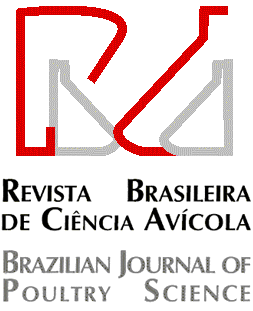ABSTRACT
Adverse environmental conditions during rearing may negatively affect productivity and meat quality of the modern fast-growing broiler strains. Temperature manipulation during sensitive embryonic development periods may affect broilers' physiological responses to environmental conditions during rearing on commercial farms. The objective of this trial was to evaluate the effect of temperature manipulation during incubation and breeder age on the meat quality of male and female broilers submitted to heat stress during the pre-slaughter period. In this experiment, 1280 broiler chicks were distributed according to a completely randomized experimental design in a 2x2x2 factorial arrangement. Treatments consisted of two breeder ages (30 and 60 weeks), two temperature programs applied in the last four days of incubation (standard or high temperature), and sex (male and female). Birds were submitted to 32 °C for 48 hours before slaughter, on day 46.Meat quality parameters (pH, temperature, color, and weight loss) were evaluated. There was significant effect (p<0.05) of sex on meat redness (a*) and fat percentage, with females presenting higher values than males in both measurements. Males incubated at the higher temperature presented higher (p<0.05) meat weight loss by pressure than females. The thermal manipulation applied during the final stage of incubation did not affect the meat yield or meat quality of broilers submitted to heat stress.
Keywords:
Adaptation; epigenetic; incubation; thermoregulation
